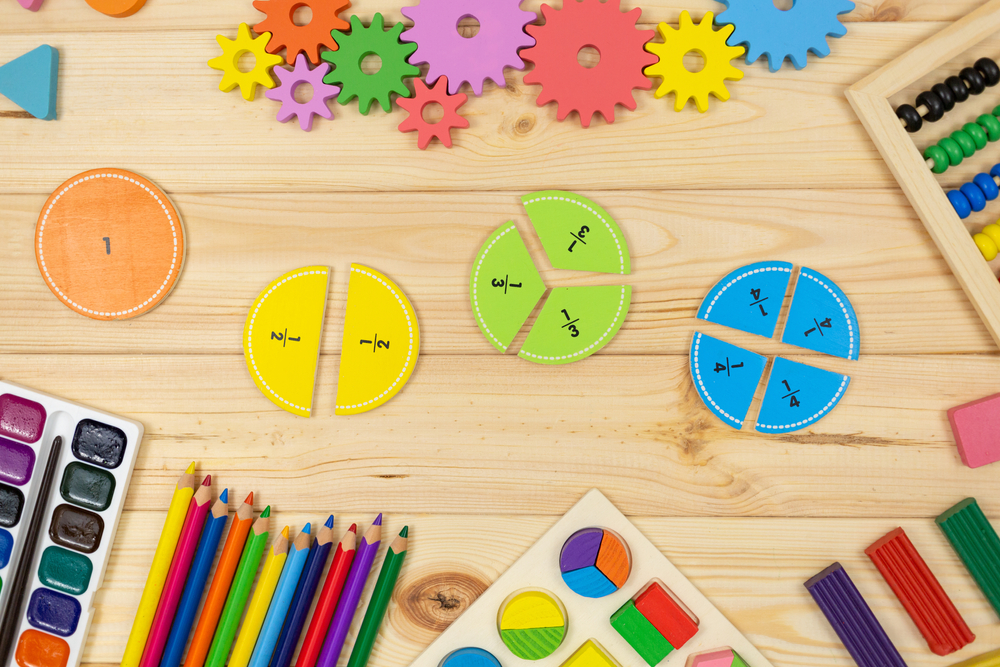Understanding fractions Normal Worksheets for Ages 6-9
17 filtered results
-
From - To
Boost your child’s math skills with our "Understanding Fractions" worksheets designed for ages 6-9. These engaging and easy-to-follow printables help young learners grasp the concept of fractions through visually appealing exercises and hands-on practice. Each worksheet guides students step-by-step, making complex concepts simple and fun. Tailored to align with curriculum standards, our worksheets cover essential topics such as identifying, comparing, and reducing fractions. Ideal for classroom use or extra practice at home, these resources build confidence and strengthen foundational math skills. Help your child succeed with our expertly crafted fraction worksheets!
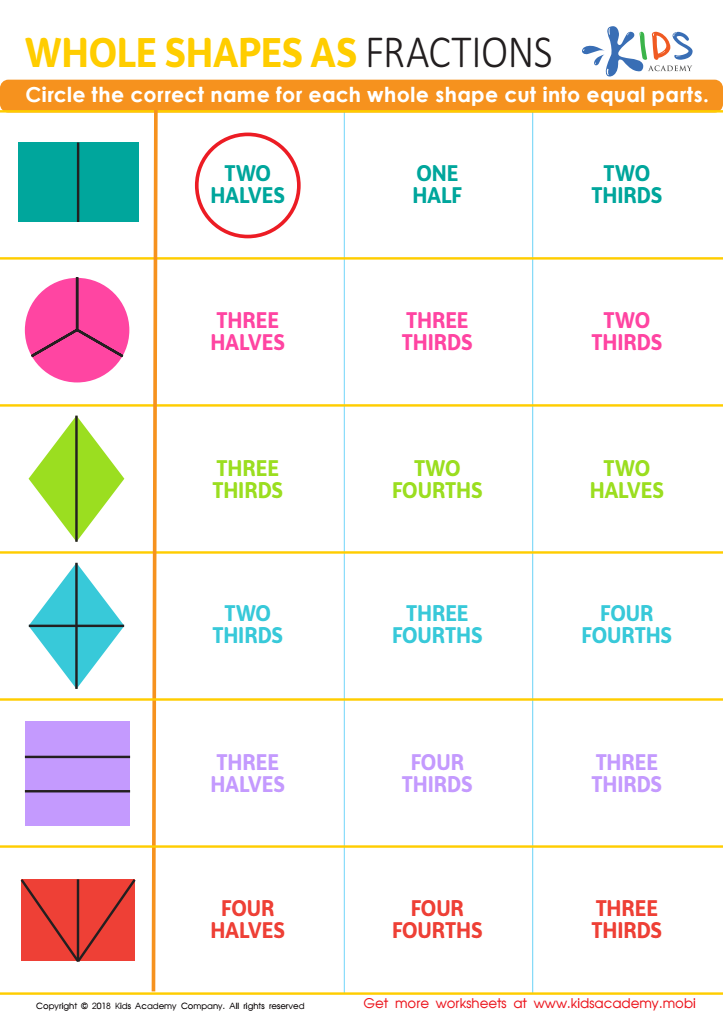

Whole Shapes as Fractions Worksheet
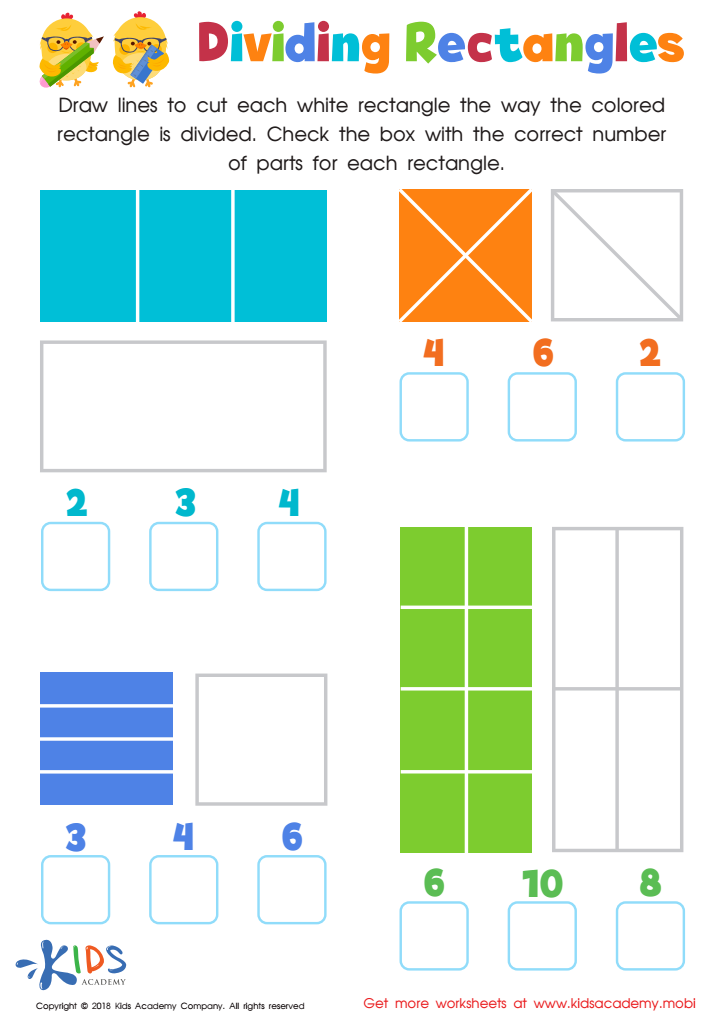

Dividing Rectangles Worksheet
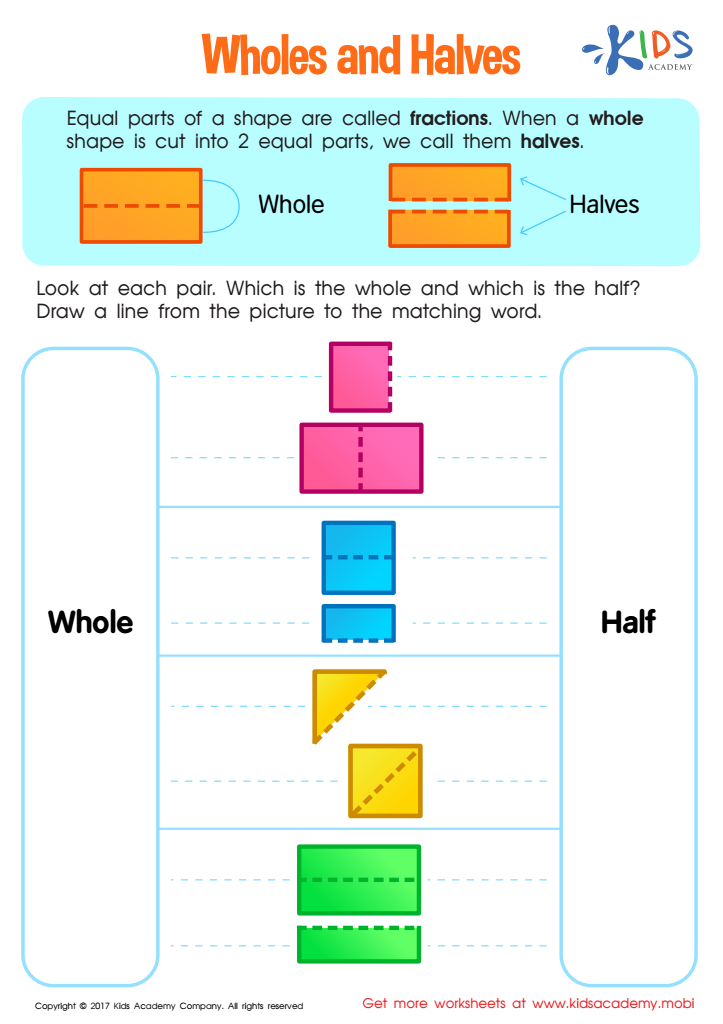

Wholes and Halves Worksheet
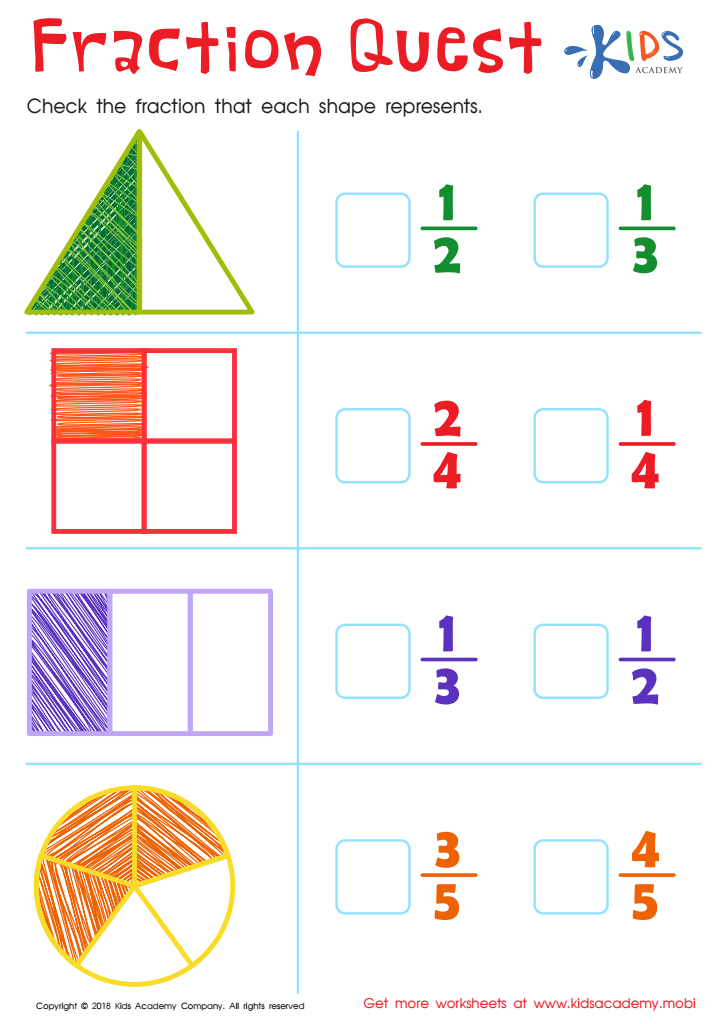

Fraction Quest Worksheet
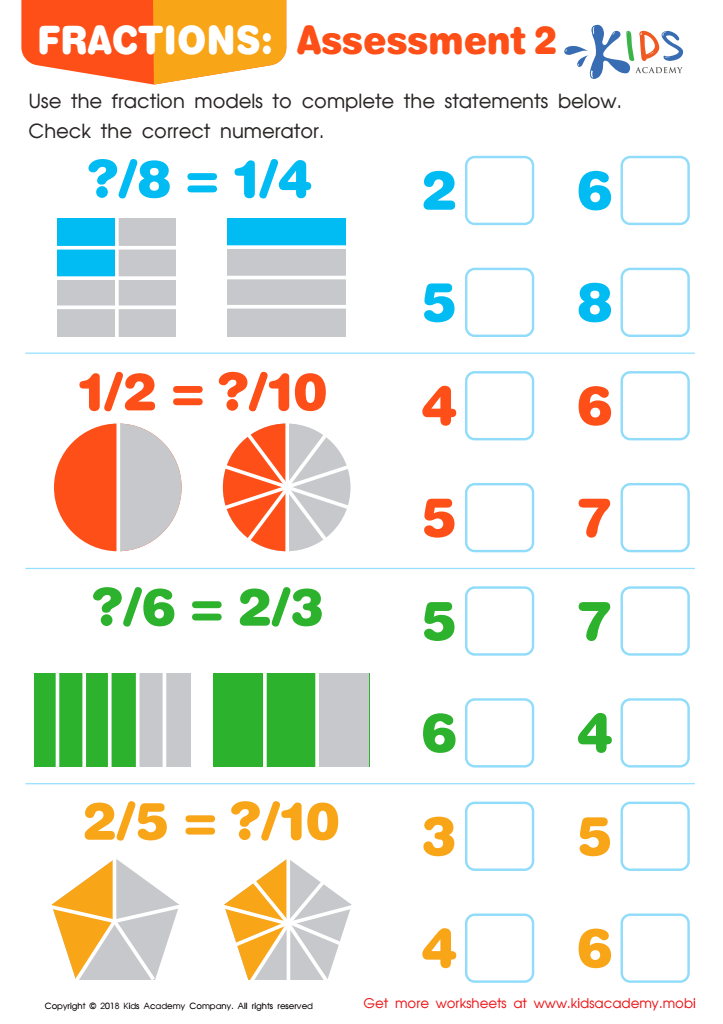

Fractions: Assessment 2 Worksheet
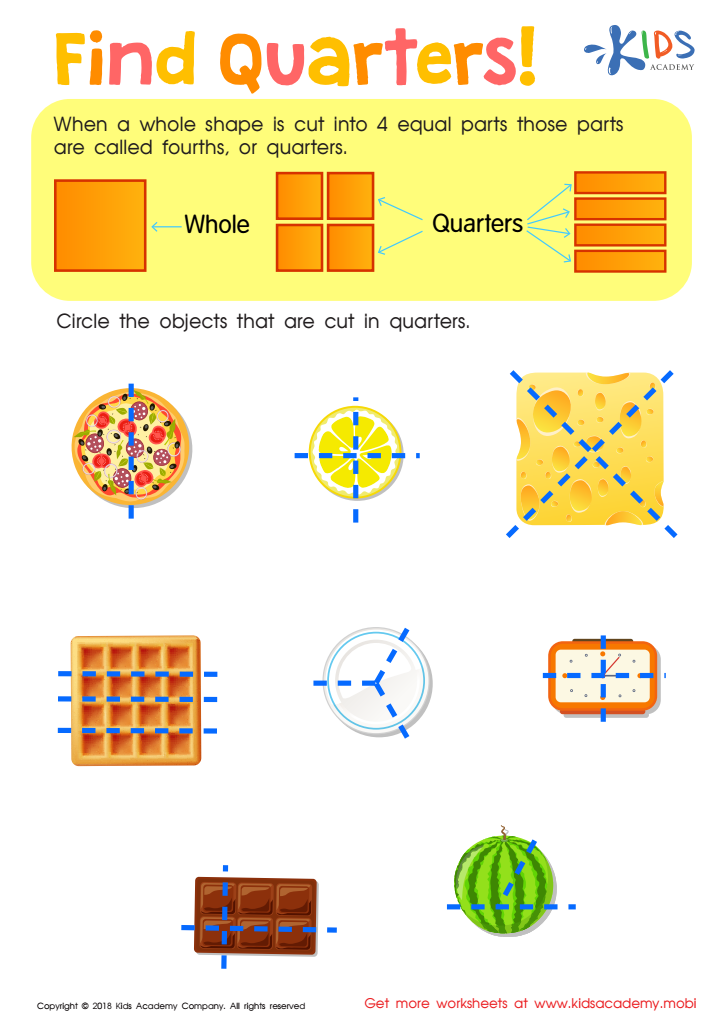

Find Quarters Worksheet
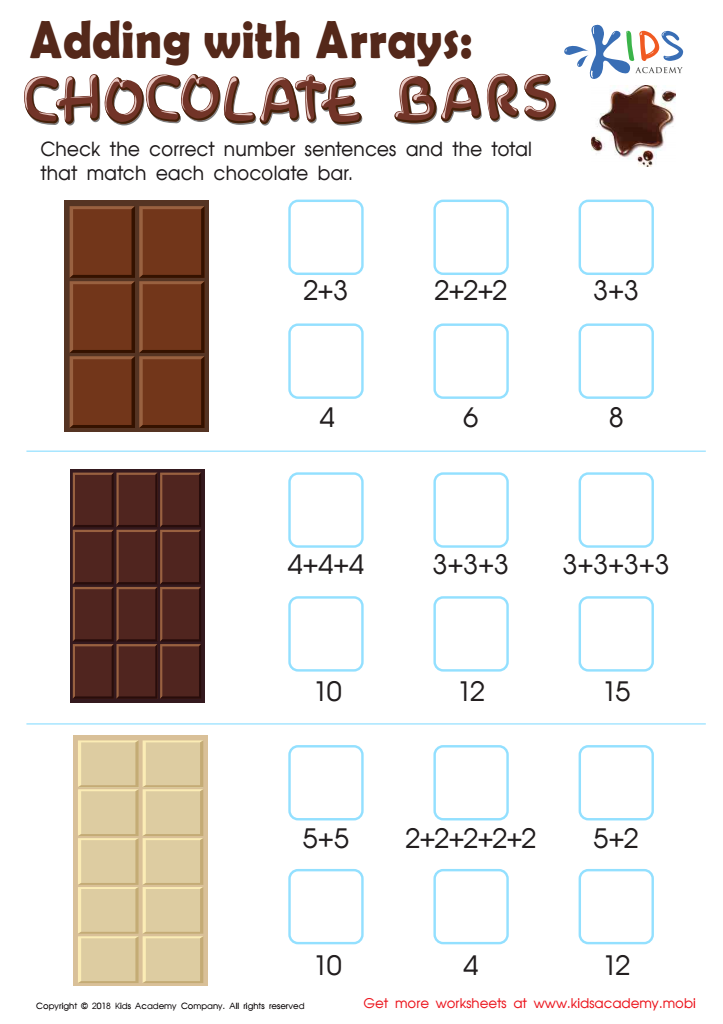

Adding with Arrays: Chocolate Bars Worksheet
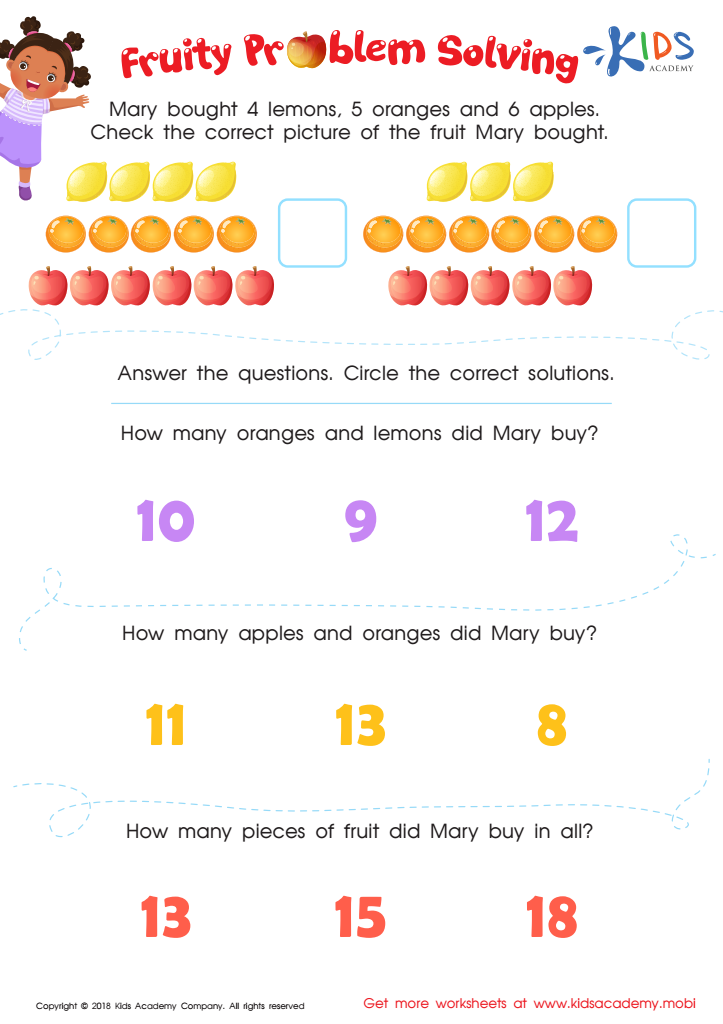

Fruity Problem Solving Worksheet
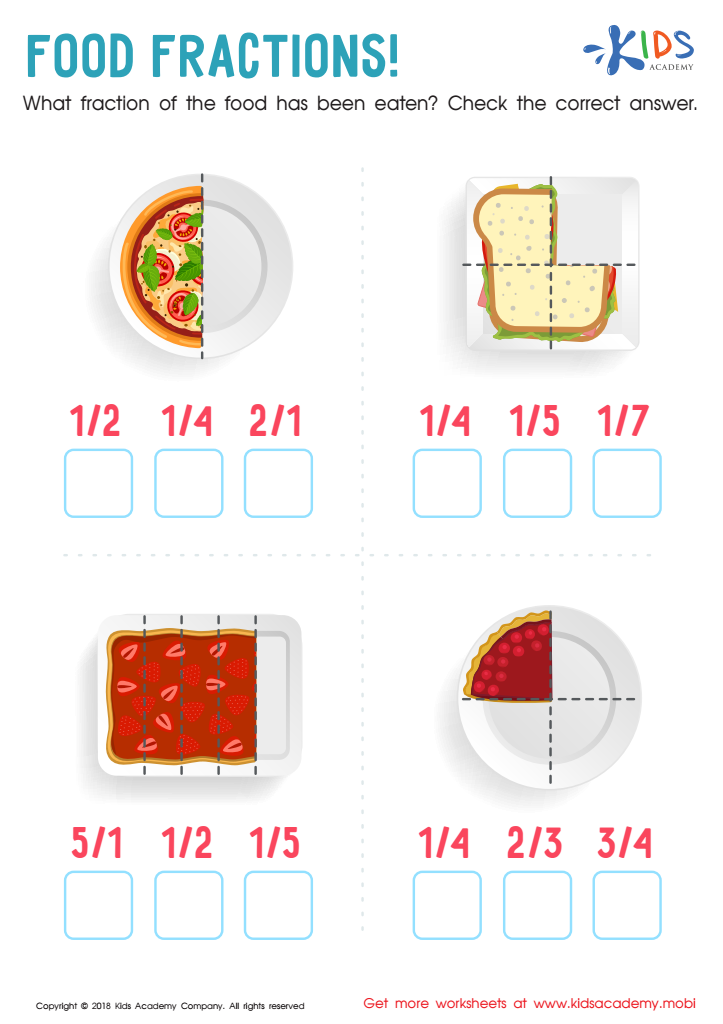

Food Fractions Worksheet
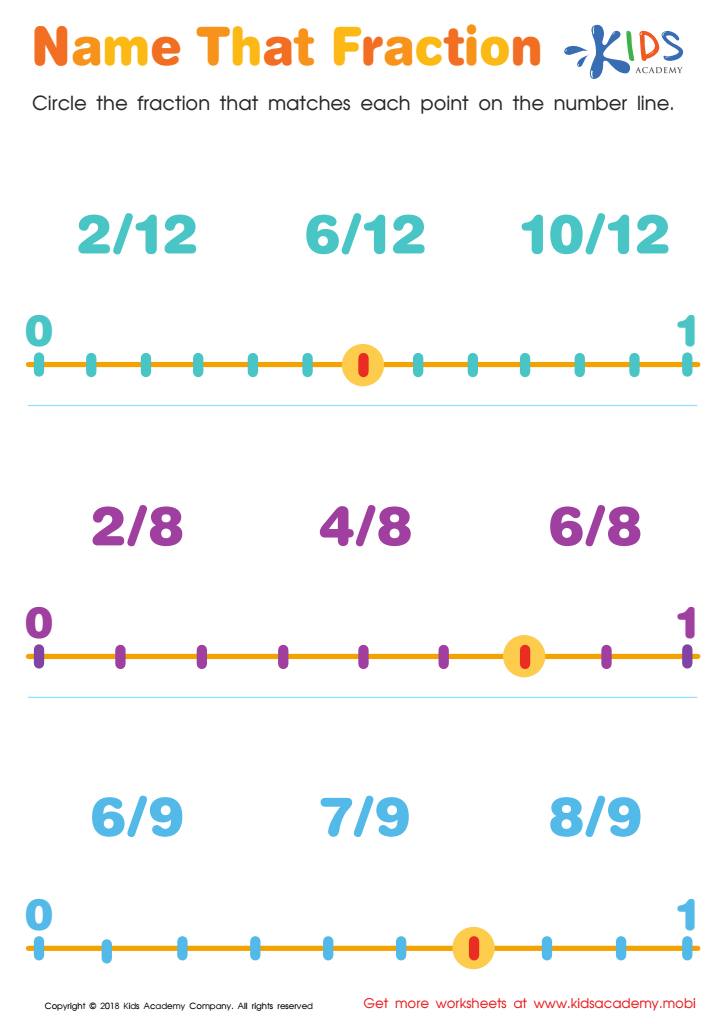

Name That Fraction Worksheet
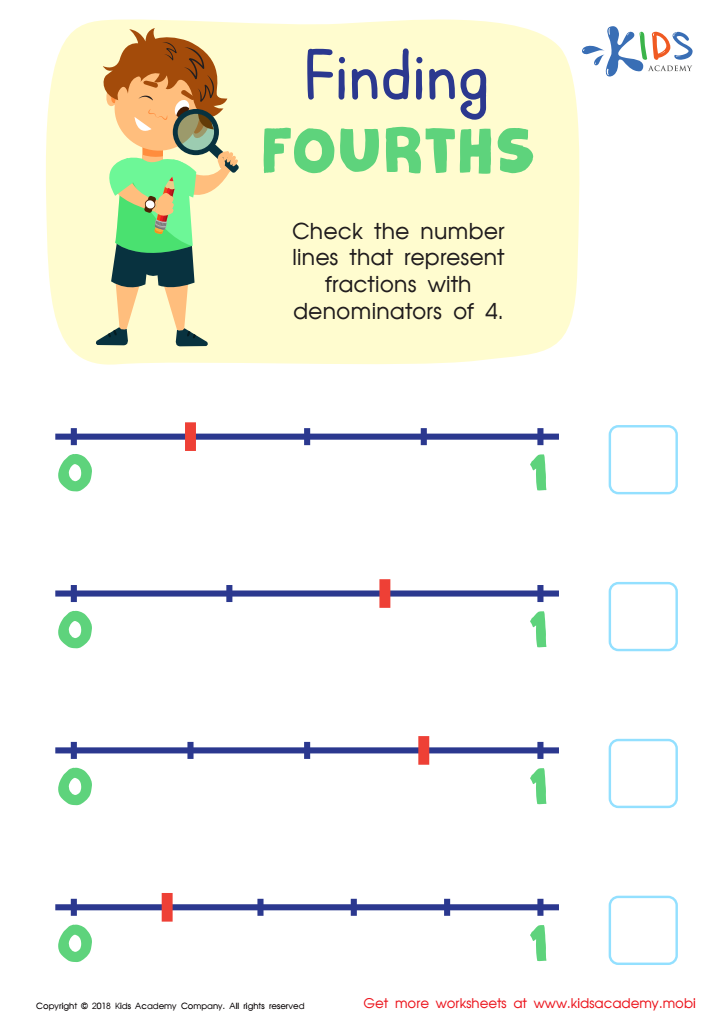

Finding Fourths Worksheet
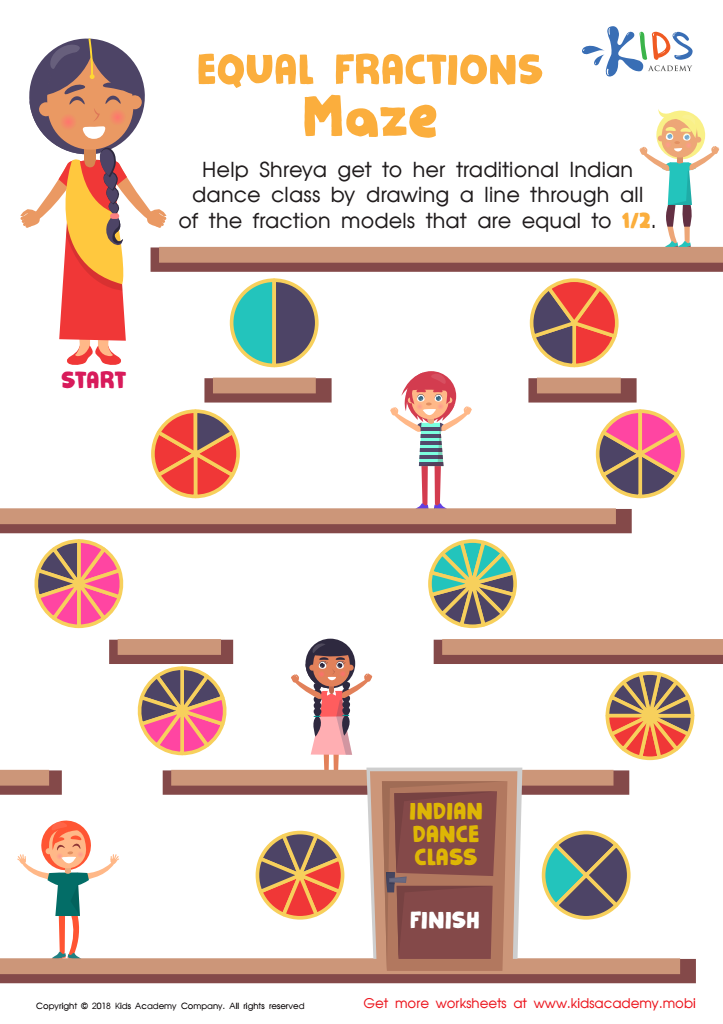

Equal Fractions Maze Worksheet
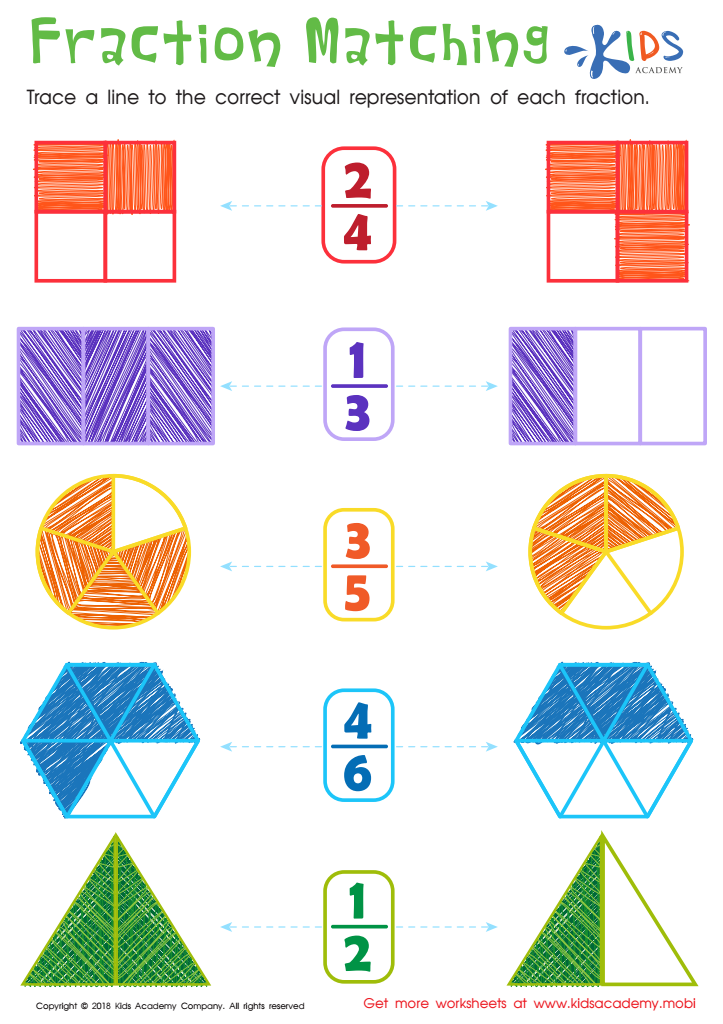

Fraction Matching Worksheet
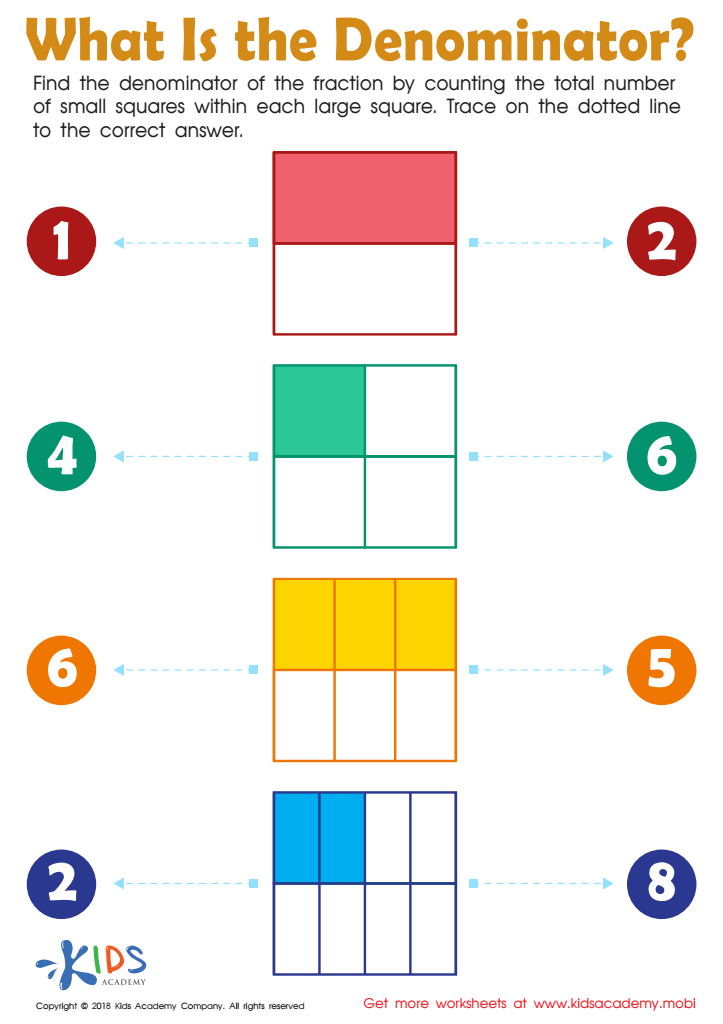

What Is the Denominator? Worksheet
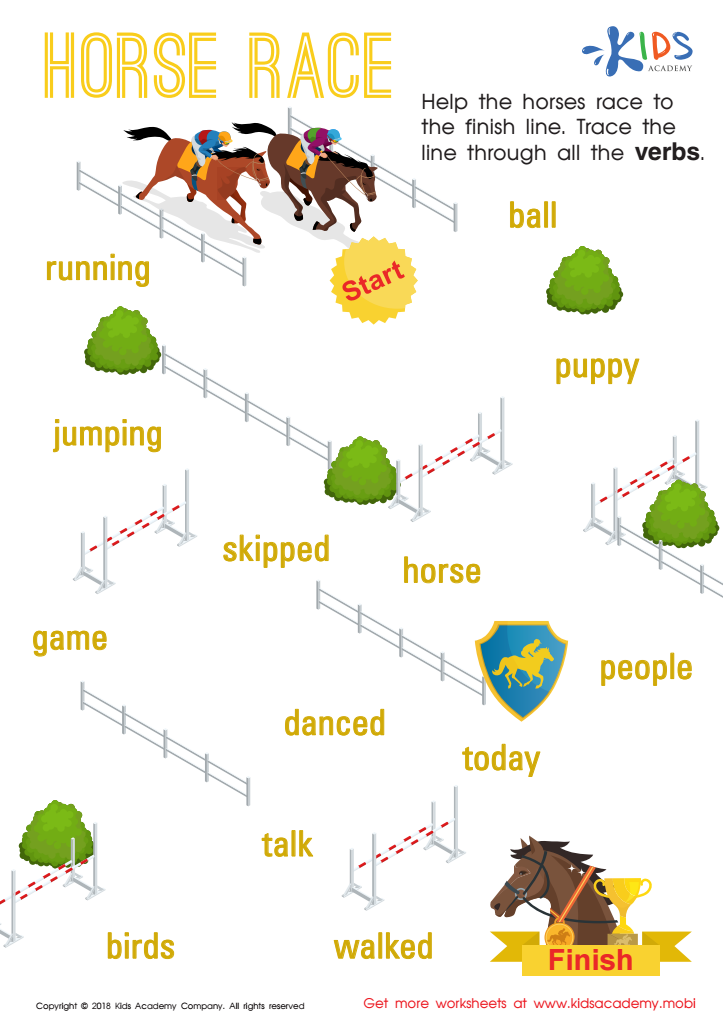

Horse Race Worksheet
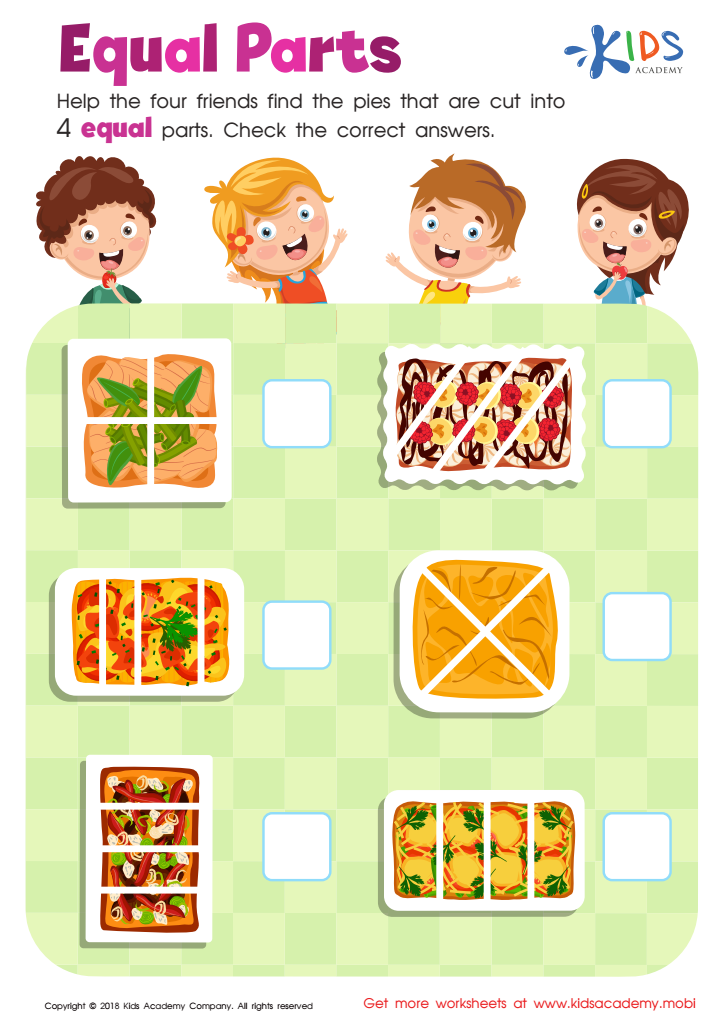

Equal Parts: Food Worksheet
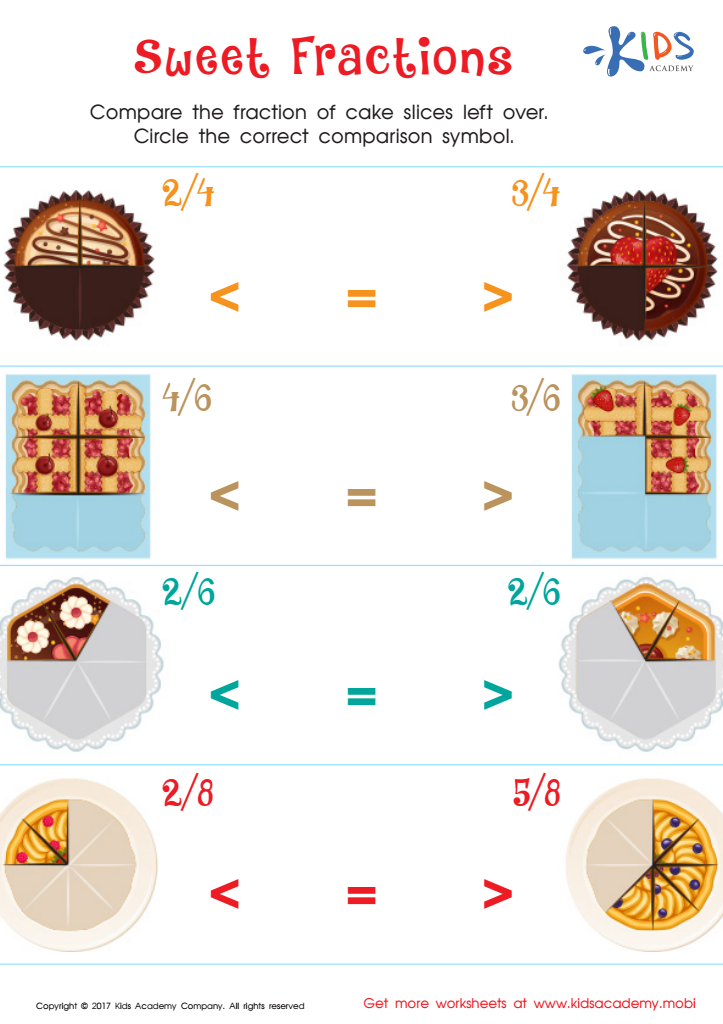

Compare Fractions Worksheet
Understanding fractions is a fundamental aspect of early mathematical education that sets the stage for advanced math concepts and everyday life skills. For children ages 6-9, grasping fractions helps them recognize parts of a whole, fostering a deeper comprehension of division, proportions, and mathematical relationships. This early knowledge is crucial because it lays the groundwork for more complex subjects they will encounter later, such as algebra, geometry, and even fundamental principles in science and engineering.
Parents and teachers should prioritize fractions because they are omnipresent in daily life. From dividing a pizza into equal slices to measuring ingredients for a recipe, fractions are essential. By understanding fractions, children develop logical thinking and problem-solving skills that are applicable in various real-world situations.
Moreover, mastering fractions enhances a child's confidence and self-esteem in math. When children feel competent, they are more likely to flourish in other academic areas, fostering a positive attitude toward learning that can have lifelong benefits. Teachers can support this learning with engaging, hands-on activities such as using fraction circles or cutting fruit into parts, making abstract concepts tangible and easier to understand.
In short, understanding fractions is essential for cognitive development and practical life skills, making it a cornerstone of foundational education.
 Assign to My Students
Assign to My Students




